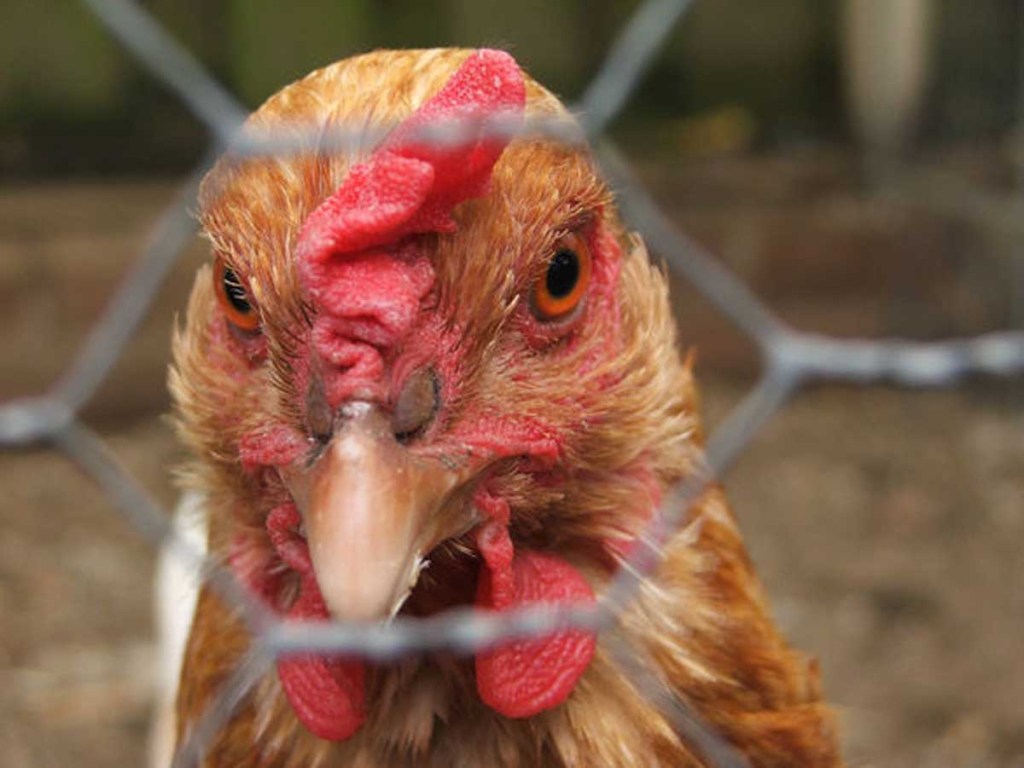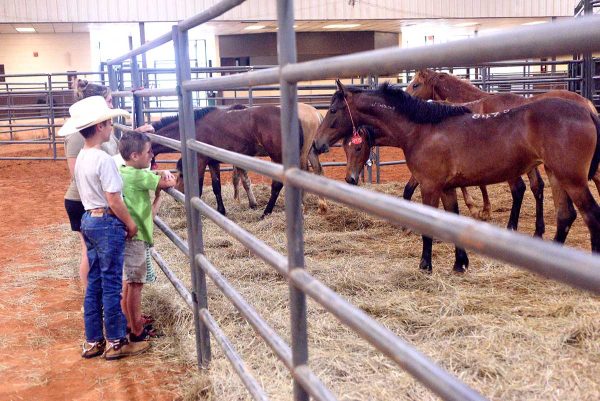Indiana oil baron behind opposition to Massachusetts caged egg and meat ban
Published 7:55 am Monday, October 17, 2016

- Caged chicken
BOSTON — Indiana oil tycoon Forrest Lucas has become a formidable opponent to animal rights groups, spending hundreds of thousands of dollars to defeat proposals aimed at banning puppy mills, restricting hunting and curtailing farming practices.
Now the 74-year-old is turning his attention to Massachusetts, where he is helping fund an 11th-hour effort to defeat a ballot question that would ban the use of cage confinement for farm animals and retail sales of eggs and meat produced by them.
Farmers and markets would only be allowed to produce and sell eggs from cage-free hens under Question 3, one of four statewide referendums on the Nov. 8 ballot. Pork and veal from animals reared in cramped enclosures would be outlawed, as well.
Lucas has chipped in $75,000 to Citizens Against Food Tax Injustice, a newly formed committee opposing the ballot question, according to filings with the Massachusetts Office of Campaigns and Public Finance. A spokesman for the billionaire-turned-activist said he expects to spend even more money ahead of the election to convince Bay state voters to reject the measure.
“This is going to drive up the price of eggs and meat to the point where they become luxury items,” said Brian Klippenstein, executive director of Protect the Harvest, a group founded by Lucas. “And low-income consumers are going to bear the brunt of it.”
Supporters of the referendum, which is backed by the Humane Society of the United States, say the move will make the state a leader in the cage-free movement by improving conditions for farm animals and food safety, and won’t dramatically impact retail prices.
So far, Citizens for Farm Animal Protection and other supporters have vastly out-raised opponents. They’ve drummed up $1.6 million to date, a sizable chunk of which has come from the Humane Society and other groups against animal cruelty, according to OCPF filings.
Recent polls have shown more than 70 percent of Massachusetts voters support the ballot initiative.
“People really care about where their food comes from and how the animals are raised,” said Stephanie Harris, Massachusetts state director for the Humane Society. “And regardless of their socioeconomic status, Massachusetts consumers deserve protection from substandard, unsafe and inhumane products. We shouldn’t have a two-tiered system where safer food is only accessible to some.”
Lucas, a former truck driver who made his riches selling automotive oils and lubricants, has taken on the Humane Society and other groups in recent years to push back against what he describes as a “wealthy and successful” attack on the agricultural industry.
Protect the Harvest is backing several ballot initiatives in the November elections. In Oklahoma, a “right to farm” proposal would amend the state constitution to block new laws restricting agricultural technology, livestock production and ranching practices. In Indiana, voters will decide whether or not to follow 19 other states in adopting an amendment to protect the right to hunt and fish.
“We’re in this for farmers and those who rely on farmers,” Klippenstein said. “This food debate in this country is being had by those that will never be concerned about missing a meal. The have-nots are not part of this debate, but they’re going to be left with the cost.”
Lucas is also on Republican presidential candidate Donald Trump’s short list for candidates for Secretary of the U.S. Department of the Interior — which oversees national parks and wildlife refuges — if Trump wins the White House, according to a report by Politico.com.
If Question 3 is approved, the ban would go into effect in 2022 and prohibit farmers from using confinement “in a cruel manner.” There would exemptions for farm animals used in medical research, at state and county fairs, and during the trip to the slaughterhouse.
It would also stop retailers from selling shelled eggs, veal or pork from out-of-state suppliers if animals were confined in tight spaces.
More than 300 million chickens nationally — about 90 percent of egg-laying hens — are raised in battery cages, the controversial pens assembled in long rows, according to the Humane Society. The pork industry confines pigs for years in immobilizing gestation crates, the group claims, while veal calves are treated similarly.
But the use of confining cages is nearly non-existent in Massachusetts, so the real impact here would be in banning the sale of eggs, pork and beef shipped from producers elsewhere. That has fueled criticism that the move would violate interstate commerce laws.
“Frankly, we think this ballot question is unconstitutional,” said Jon Hurst, president of the Massachusetts Retailers Association. “The state’s consumers should be able to make their own decisions about what products they want to buy, and at a reasonable price.”
Opponents say mandating cage-free eggs will burden low-income shoppers who can’t afford the products.
They cite a recent Cornell University study estimating the cost to Massachusetts consumers from the ban would exceed $249 million in the first year. The study was based on data from California, where a voter-approved cage-free egg law went into effect last year.
“You can go into a grocery store anywhere in the state and see the price difference between conventional and cage-free eggs, which are usually two- to three times more expensive,” said Diane Sullivan, executive director of Citizens Against Food Tax Injustice.
Sullivan, a longtime anti-poverty activist from Malden, filed a lawsuit in April with egg farmer James Dunn seeking the block the question from the ballot, with financial backing from Protect the Harvest’s Action Fund. But the state Supreme Judicial Court rejected it.
She said the ban would affect the state’s most vulnerable residents.
“There’s been no real cost analysis on the impact to schools, nursing homes and others that rely on accessible sources of animal protein to feed people,” Sullivan said. “These people are playing food police by trying to dictate what we eat, and low-income people will pay for it.”
Christian Wade covers the Massachusetts Statehouse for the North of Boston Media Group’s newspapers and websites. Reach him at cwade@cnhi.com.


